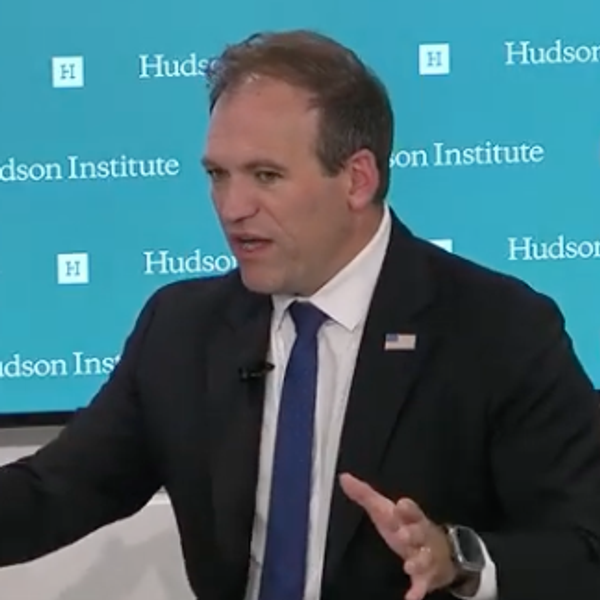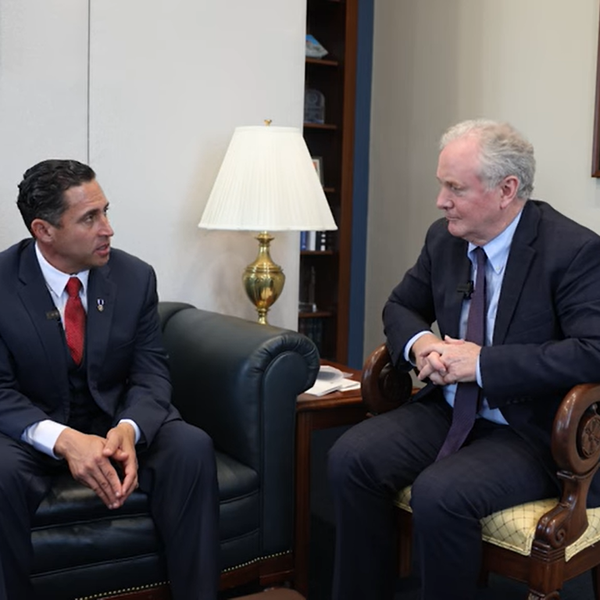The foreign policy “Blob” is alive and well. They want the U.S. military to stay in Afghanistan with a new goal and if we fall for the magic trick again, shame on us.
The Washington Post published revealing interviews about what senior policy makers actually thought was going on in Afghanistan (i.e. losing with no end in sight) while at the same time piling on with military surges and renewed efforts to “win” the war.
Three separate administrations have offered a vast array of goals, and combinations thereof, in Afghanistan that would constitute “winning,” including: a strong, democratic, uncorrupt central government in Kabul; the defeat (later a stalemate would do) of the Taliban; a healthy, diversified economy; an infrastructure that actually worked; an effective police and military free, itself, of corruption; and an end to the poppy economy. They’re all lovely goals of course, but none of them have been met after more nearly $2 trillion in total spending, countless Afghan lives lost, and more than 2,500 Americans killed.
Nonetheless, the Blob rose up to smite the Post for lifting the edge of the curtain on what “leaders” actually thought as they marched the nation further into a hopeless cause. They are right on one point, and only one: John Sopko, the Special Inspector General for Afghanistan Reconstruction, has been telling Americans for more than a decade that U.S. policies and programs there were failing.
The problem is less that the policymakers lied — they did — but more that they lied to themselves, year-after-year. What’s astonishing is that they are still at it; still fooling themselves and trying to fool the rest of us, once again, into keeping the U.S. military in Afghanistan.
We cannot leave, they say, we need to convince Donald Trump that we need to keep around 9,000 soldiers in Afghanistan while it’s blindingly clear to the rest of us that this is nonsense, those troops will do nothing meaningful — no training, no killing, no protection worth spending money on.
And so, a new goal is born. We need to protect people gathering intelligence, scurrying into souks under cover and finding out what the potential terrorists are up to. This is, they say, about protecting the United States from what happened in September 2001. Our national security is at stake, they say. And we have to protect our people; we cannot rely on the Afghan army to provide intelligence on terrorists in their own country. And anyway, Afghans are bad at it, and we are better. If our spies are to be safe, we need to keep troops there to “protect” them.
Otherwise, as Nick Rasmussen, former director of the National Counterterrorism Center said, “all of a sudden you’re not there to collect.”
The advocacy for a continued military presence feels like a movie run in reverse, back to the 2001 days of air cover and intelligence support for the Northern Alliance. The Blob — now the intelligence part — wants to turn back the clock to those heady days when intelligence and terrorist-hunting were the goals.
But we are 18 years later; the movie has run forever. So think about this advocacy. In 18 years we have not recruited or trained a functioning force of Afghan intelligence-gatherers we can now rely on. What were we spending the intelligence funds on when we threw them into the country? Trained nobody; recruited nobody; kept untrustworthy Afghans at arms length? What a policy failure that is.
What makes Afghans bad at collecting intelligence? Do we know the country and its people better than they do? Such hubris; it got us in trouble everywhere around the world. We knew Vietnam better, too. We are so smart. Or, perhaps, perpetually self-deluded.
And if we leave our intel-collectors there, do they need U.S. uniforms for support? Last time I looked, we collected volumes of intelligence in the Soviet Union/Russia, while the only boots on the ground were Marine Guards at the U.S. Embassy. If it is really true that only U.S. troops can ensure proper, secure intelligence gathering, are we confessing that our intelligence is inept or compromised through the rest of the world, in many countries where we have no troops?
Then there are the special magic of numbers: the false notion that around 9,000 U.S. troops are the “requirement” to ensure good, secure intelligence. Really? How convenient. And how unconvincing. It’s almost as if the number were pulled out of the air — it’s under 10,000, after all — and the rationale stitched on afterwards — a miracle, just the exact requirement!
It’s a reminder of those heady days of optimism when 100,000 troops was just right to meet all those ambitious goals we had. Or, even way back to the days when then-Defense Secretary Robert McNamara thought 1,000 was the right number of land-based nuclear missiles to defend the U.S., not because the Soviets had as many nuclear missiles; they had under ten. But because the four-digit number sounded good.
This is an old magic trick and it fools the viewer every time. But it is a false promise and reverse engineering. We need troops to fight terrorists? We have chased them around the world for two decades now, succeeding only in creating more of them. Rather like the Sorcerer’s Apprentice trying stop the bucket brigade in his master’s lab by cutting the bucket-carrying brooms in half., thus, making the problem even worse.
No, the Washington Post is right; the policymakers and the Blob are still fooling themselves and trying to fool us. Fool me once, your fault. What about the second time (or the tenth)?














